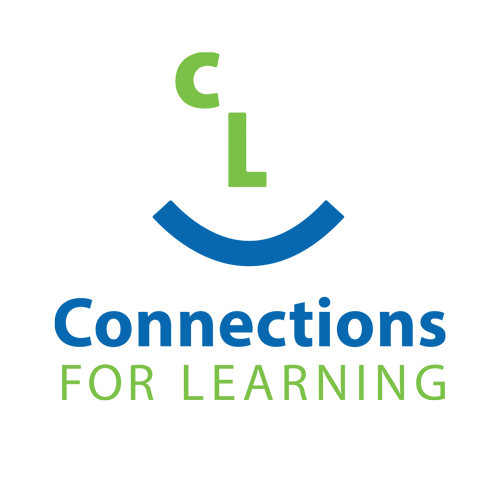3: Role of the Trustee
Policy
The Board of Trustees is a corporation. The decisions of the Board in a properly constituted meeting are those of the corporation.
The role of the Trustee is to contribute to the Board as it carries out its mandate in order to achieve its mission and goals. The oath of office taken or affirmation made by each Trustee when assuming the role binds that person to work diligently and faithfully in the cause of public education.
Individual trustees exercise an effective decision making role in the context of corporate action. A Trustee who is given authority by Board motion to act on behalf of the Board may carry out duties individually but only as an agent of the Board. In such cases, the actions of the Trustee are those of the Board, which is then responsible for them. A Trustee acting individually has only the authority and status of any other citizen of the Division. Individual trustees do not have the authority to direct the Division’s administration and staff.
As a result of elections, the Board may experience changes in membership. To ensure continuity and facilitate smooth transition from one Board to the next following an election, trustees must be adequately briefed concerning existing Board policy and practice, statutory requirements, initiatives and long-range plans. The Board believes an orientation program is necessary for effective trusteeship. All trustees are expected to attend all aspects of the orientation program.
Trustee Orientation
1. In the year of an election, or subsequently following a by-election, the Board Chair and Superintendent shall ensure an orientation program is provided for all elected candidates prior to the Organizational Meeting.
1.1. The Superintendent shall provide items to each Trustee in accordance with Policy 3 Appendix 3.1 at the organizational meeting or as prudent to do so.
2. The Superintendent shall ensure Trustees attend to orientation as required and that is in a manner appropriate to the Trustees’ schedules. Trustee orientation shall include:
2.1. A review of the Role of the Trustee and the Board;
2.2. A review of the process regarding Board policy, agendas and minutes;
2.3. A review of Board assignments and committees;
2.4. An opportunity for Trustees to express interest in Board assignments and committees;
2.5. A review of organizational structures and procedures of the Division;
2.6. A review of existing Division initiatives, annual reports, budgets, financial statements and long-range plans;
2.7. A review of Division programs and services;
2.8. A review of the Board’s function as an appeal body;
2.9. A review of statutory and regulatory requirements, including responsibilities with regard to conflict of interest.
3. As soon as prudent to do so following the Organizational Meeting, the Superintendent shall ensure that Trustees are familiar with Parkland School Division through appropriate site and school visits, including:
3.1. A tour of the offices with an opportunity to meet Division Office staff; and
3.2. A tour of the schools with an opportunity to meet the Principals and staff.
4. Incumbent trustees are encouraged to help newly elected trustees become informed about history, functions, policies, procedures and issues.
Trustee Responsibilities
The Education Act s. 34 notes that “a Trustee of a board, as a partner in education, has the responsibility to: (a) Fulfil the responsibilities of the board as set out in section 33.” Specifically, trustees shall:
5. Respectfully bring forward and advocate for local issues and concerns;
6. Refer matters not covered by Board policy to the Board for corporate discussion and decision;
7. Demonstrate a recognition of their fiduciary responsibility to the Division and act in the best interests of the Division understanding that Division needs are paramount; notably:
7.1. Vote on every Board motion, unless there is a conflict of interest; and
7.2. Support a majority vote of the Board as if the vote had been unanimous;
8. Refer administrative matters to the Superintendent;
9. Exercise delegated authority within the defined limits in a responsible and effective way; and
10. Stay current with respect to provincial, national and international educational issues and trends. The Education Act s. 34 notes that “a Trustee of a board, as a partner in education, has the responsibility to: (b) Be present and participate in meetings of the board and committees of the board.” Specifically, trustees shall:
11. Become familiar with the Division policies and procedures, meeting agendas and reports in order to participate in Board business;
12. Attend Board and committee meetings prepared to participate in, and contribute to, the decisions of the Board in order to provide the best solutions possible for education within the Division;
13. Participate, subject to Board approval, in Board/Trustee development sessions so that the quality of leadership and service in the Division can be enhanced; and
14. Share the materials and ideas gained with fellow trustees at a Board meeting following a Trustee development activity.
The Education Act s. 34 notes that “a Trustee of a board, as a partner in education, has the responsibility to: (c) Comply with the board’s code of conduct.” Specifically:
15. Strive to develop a positive and respectful learning and working culture both within the Board and the Division;
16. Become familiar with, and adhere to, the Trustee Code of Ethics and model the Division’s Code of Conduct; and
17. Report any violation of the Trustee Code of Ethics to the Board Chair or the Vice-Chair in the event circumstances prevent a disclosure to the Board Chair.
The Education Act s. 34 notes that “a Trustee of a board, as a partner in education, has the responsibility to: (d) Engage parents, students and the community in matters related to education.” Specifically, trustees shall:
18. Provide for the engagement of parents, students and the community in matters related to education, in an ongoing manner and as prudent to do so;
19. Upon receiving a complaint or an inquiry from a parent or community member about operations, refer the parent or community member back to the school or department and will inform the Superintendent of this action;
20. Keep the Superintendent and the Board informed in a timely manner of all matters coming to his/her attention that might affect the Division. Personnel matters are to be brought to the attention of the Superintendent only;
21. Attend School Council(s) meetings as invited to do so;
22. Attend Division or school community functions when possible;
23. Participate in community initiatives and activities;
24. Hold meetings with elected officials of the municipalities they represent; and
25. Participate in school events as invited.
25.1. On those occasions when attending a school in an unofficial capacity and beyond the scope of the Trustee, principals are to be advised.
Approved:























